Inverter generators vs. traditional generator
- By BISON
Table of Contents
In the world of power generation, two types of generators have long been at the forefront: traditional generators and inverter generators. Inverter and traditional generators are two common choices for portable power solutions. While both serve the purpose of power generation, they have distinct differences in functionality, benefits, and suitability for various applications.
BISON will delve into the mechanics of both traditional and inverter generators, explore their advantages and disadvantages, and scrutinize their key differences—from power output and fuel efficiency to noise levels, portability, and cost…
By understanding these distinctions, you can make an informed decision on which type suits your specific needs best. Whether you’re a first-time buyer or looking to upgrade your generator business, this comprehensive guide will equip you with the knowledge to choose the right generator confidently.
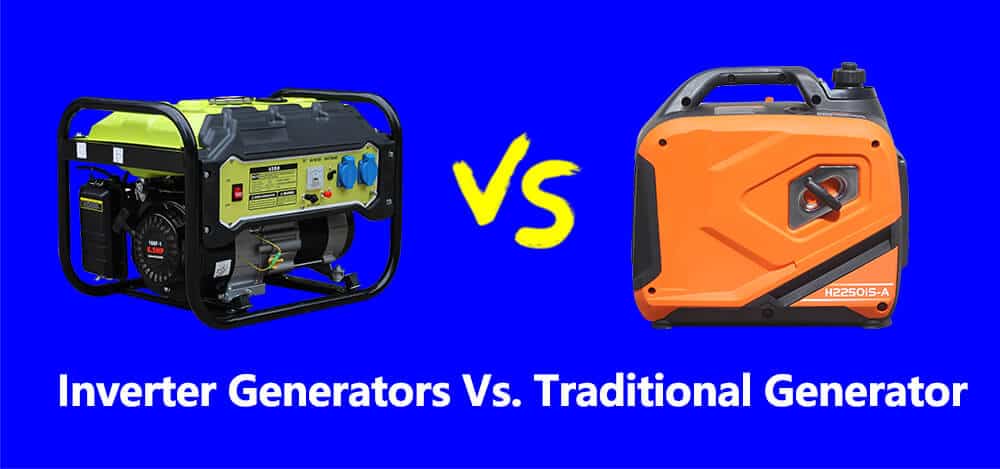
Traditional generators: powerhouse of durability and affordability
Stepping into the realm of traditional generators, we find a time-tested solution to various power demands. Traditional generator engine is usually powered by gasoline, propane, diesel, or natural gas. It converts fuel chemical energy into useful mechanical energy through combustion, which drives the generator head. An alternator, which makes up the generator’s head, utilizes electromagnetic induction to transform mechanical energy into electrical energy.
Characteristics of traditional generators
- Durability: Traditional generators can produce high power output, making them ideal for powering heavy-duty equipment and appliances. They are often encased in robust frames, can withstand rough handling, heavy use, and harsh weather conditions.
- Affordability: They generally come with a lower price tag compared to their inverter counterparts, making them an economical option for budget-conscious users.
- Wide range of power outputs: Traditional generators cover a broad spectrum of power outputs, offering versatility in usage. You can use them as a backup power source for homes, businesses, shops, etc(they have a fixed location, and you can’t move them). If you like traveling in RVs or camping, use a small portable generator to power the electrical equipment inside your RV, camper van, or motorhome (you can move them or take them from one place to another).
- Easy to maintain: Traditional generators are easier to maintain than inverter generators, with simple engines that are easy to service and repair.
Drawbacks of traditional generators
- Noise pollution: Traditional generators can be quite loud. These generators can disturb residential areas, camping, etc.
- Voltage fluctuations: Unlike inverter generators, the power output of traditional generators is often inconsistent with fluctuations in voltage and frequency., which might not be suitable for power-sensitive electronics. This may harm sensitive electronic equipment (computer, audio, stereo, etc.).
- fuel efficiency: Although you can get generators that run on a variety of fuels (propane, gasoline, natural gas, and diesel fuel), traditional generators have poor overall fuel efficiency. This means that traditional generators may need to be refueled more frequently.
- bulky and heavy: Although you do find some portable models, they are still heavy units. Standby generators are larger devices that don’t even have the option to move from one location to another.
Practical applications of traditional generators
Given their high power output and ruggedness, traditional generators are ideal for situations requiring a substantial amount of power. Their affordability also makes them a popular choice for users who need powerful generators but are working within a tight budget.
Unlike inverter generators, traditional generators typically produce electricity with higher total harmonic distortion (THD). As a result, traditional generators are generally not recommended for powering sensitive electronic devices that require clean and stable power, as it may cause potential damage or interference to these devices.
Traditional generators have many applications. Here is a short list of the main applications of generators.
Generators’ first and primary application is as backup power devices during emergencies. You can use traditional generators as a backup power source in case of power outages, especially in areas with power grids or during natural disasters.
traditional generators are also helpful in agricultural settings to power farm equipment and irrigation systems.
If you work in remote locations such as mining or oil exploration sites, access to electricity is very limited. You can use traditional but portable generators to provide electricity.
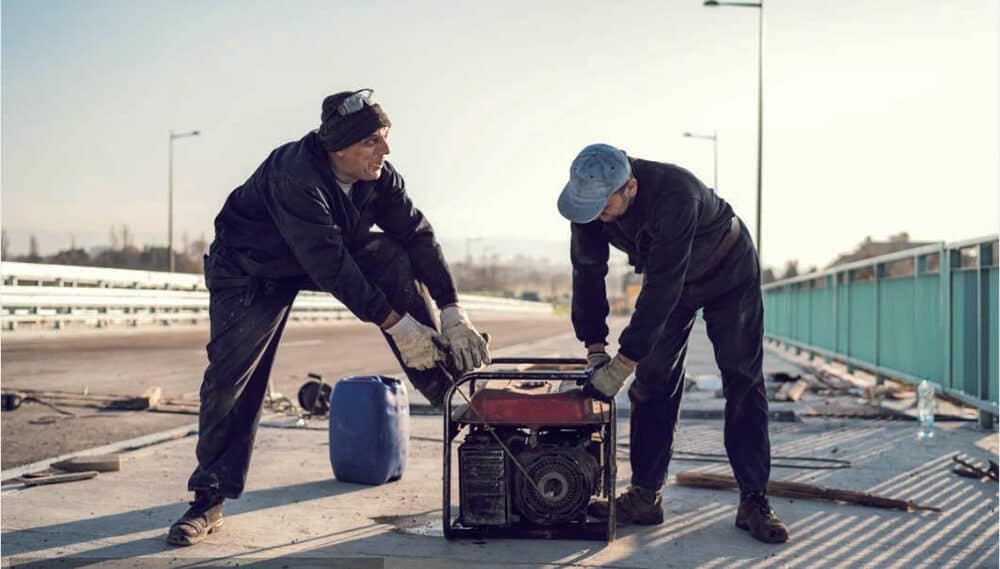
Inverter generators: The epitome of quiet efficiency and clean power
An inverter is a portable power generator with advanced technology to produce clean and stable electrical power. It combines the capabilities of a traditional generator with an inverter, resulting in several advantages over traditional generators.
Inverter generators operate on a three-step process. Initially, the generator produces AC power, similar to a traditional generator. This AC power is then converted into DC power. Finally, the DC power is ‘inverted’ back into clean, stable AC power. This inversion process is where these generators get their name.
Benefits of Inverter Generators
- Quieter operation: Thanks to their advanced technology, inverter generators run significantly quieter than their conventional counterparts, making them ideal for use in noise-sensitive environments. This makes inverter generators more suitable for camping, outdoor events, residential use, or any situation where noise reduction is essential.
- Cleaner power output: The inversion process results in ‘clean’ power with minimal harmonic distortion. This makes them safe for powering sensitive electronic devices, such as laptops, smartphones, cameras, and televisions. You can rely on an inverter generator to provide clean power without the risk of damaging.
- Fuel efficiency: Inverter generators can adjust their engine speed to match the load, unlike traditional generators that run at a constant speed. When the load is light, the generator runs at a lower speed, using less fuel. This feature saves fuel costs and increases the generator’s runtime, allowing you to enjoy power for longer without frequent refueling.
- Compact and lightweight: Inverter generators are usually more compact and lighter than traditional generators. Their portable design makes them able to transport, store, and maneuver.
- Parallel capability: Many inverter generators come with the option of connecting two generators in parallel. This allows you to combine the power output of two units, effectively doubling the available power. This is handy when you have high power demands or must run multiple devices simultaneously.
Real-life applications of inverter generators
Like traditional generators, the primary application of inverter generators is using them as a backup power source for homes, shops, and small businesses. Inverter generators shine in scenarios where quiet operation, portability, and clean power are paramount.
Consider a peaceful camping trip, RVing adventures, or tailgating events—these are settings where an inverter generator’s benefits truly come to the forefront. Moreover, they’re a reliable choice for powering sensitive home appliances during a power outage, such as computers, laptops, smartphone chargers (basically anything with a switching power supply), audio equipment, speakers, TVs, etc.
However, inverter generators have a lower power rating than traditional generators. This may limit the possibilities of using inverter generators on construction sites.
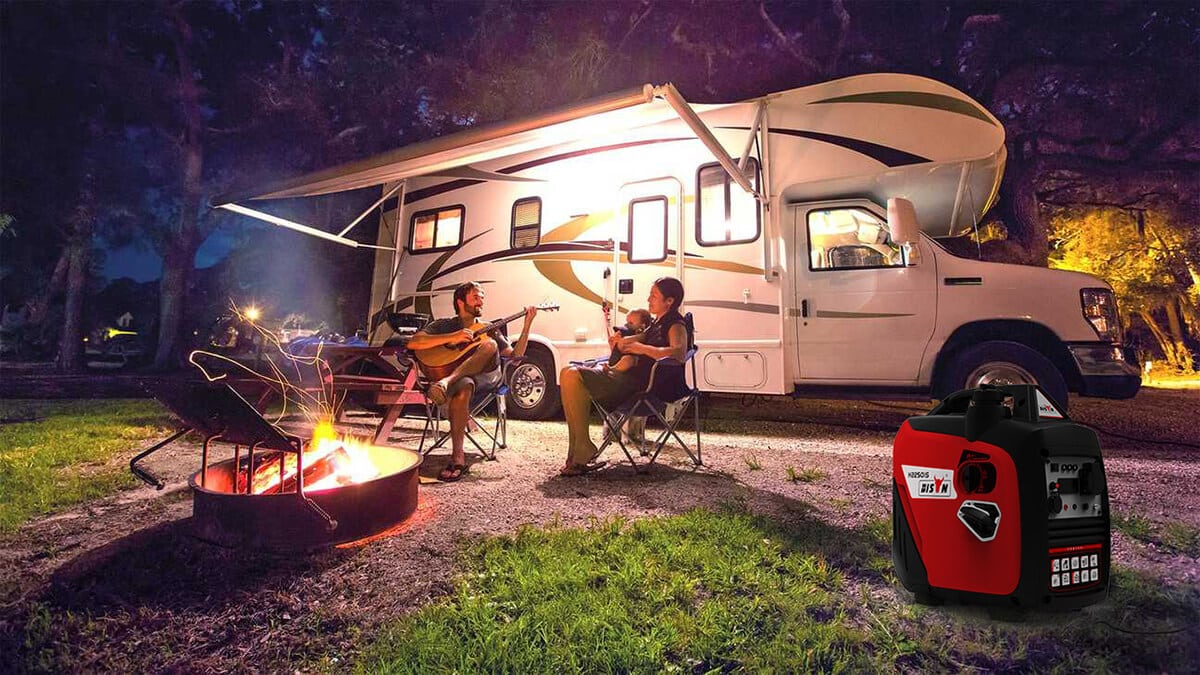
Comparing inverter generators and traditional generators: a side-by-side look
When choosing a generator, it’s crucial to understand the differences between inverter generators and traditional generators. Let’s break down these differences across various key parameters:
Portability: Inverter generators are more compact and lighter than traditional generators. Their portable design makes them helpful to transport and store, while traditional generators are bulky.
Noise levels: Inverter generators are specially designed to operate quietly, with noise levels between 50-60 decibels. On the other hand, traditional generators produce more noise, usually up to 70-90 decibels, depending on the model.
Power quality: Inverter generators use advanced electronics to regulate the voltage and frequency of the electrical output, ensuring a consistent and high-quality power supply. So their power output is ‘clean’ and stable. While reliable, traditional generators can produce power with high THD, potentially damaging or disrupting sensitive electronics.
Fuel efficiency: Inverter generators excel in fuel efficiency as they adjust their engine speed to match the load. Traditional generators run at a constant speed, regardless of the load, consuming more fuel, especially under light loads.
Cost: While inverter generators offer several advantages, they also come with a higher price tag. Traditional generators are generally more affordable, making them a popular choice for those on a budget.
Conclusion
Inverter and traditional generators differ significantly regarding technology, benefits, and applications. Inverter generators provide clean power, fuel efficiency, and quiet operation, making them suitable for sensitive electronics and recreational use. traditional generators offer higher power capacity and are better suited for heavy-duty applications and backup power in commercial or residential settings.
Ultimately, deciding between an inverter and a traditional generator depends on your power needs, budget, noise tolerance, and portability requirements. Evaluating these factors and considering each type’s specific features and benefits will help you make an informed choice that is right for your situation.
Guiding your generator selection process
As a professional generator supplier, BISON understand the importance of choosing the right generator for your business needs. We aim to empower you with the necessary knowledge and guidance, ensuring you make an informed decision that aligns with your requirements.
It’s crucial to consider what type of equipment will be powered by the generator. For instance, sensitive electronic devices require ‘clean’, stable power, which is provided by inverter generators. If your business deals with such equipment, an inverter generator could be the ideal choice.
The environment in which you’ll use the generator is another deciding factor. In noise-sensitive settings, the quiet operation of inverter generators gives them a distinct advantage over traditional generators.
Cost is often a significant factor in decision-making. While inverter generators offer many advantages, they come at a higher price point. Traditional generators, on the other hand, are more affordable, making them a suitable choice if budget is a constraint.
By considering these factors, you can effectively choose between an inverter generator and a traditional generator. Our team is always ready to provide further assistance and guidance. Reach out to BISON today and let us help you find the perfect generator solution for your business needs.
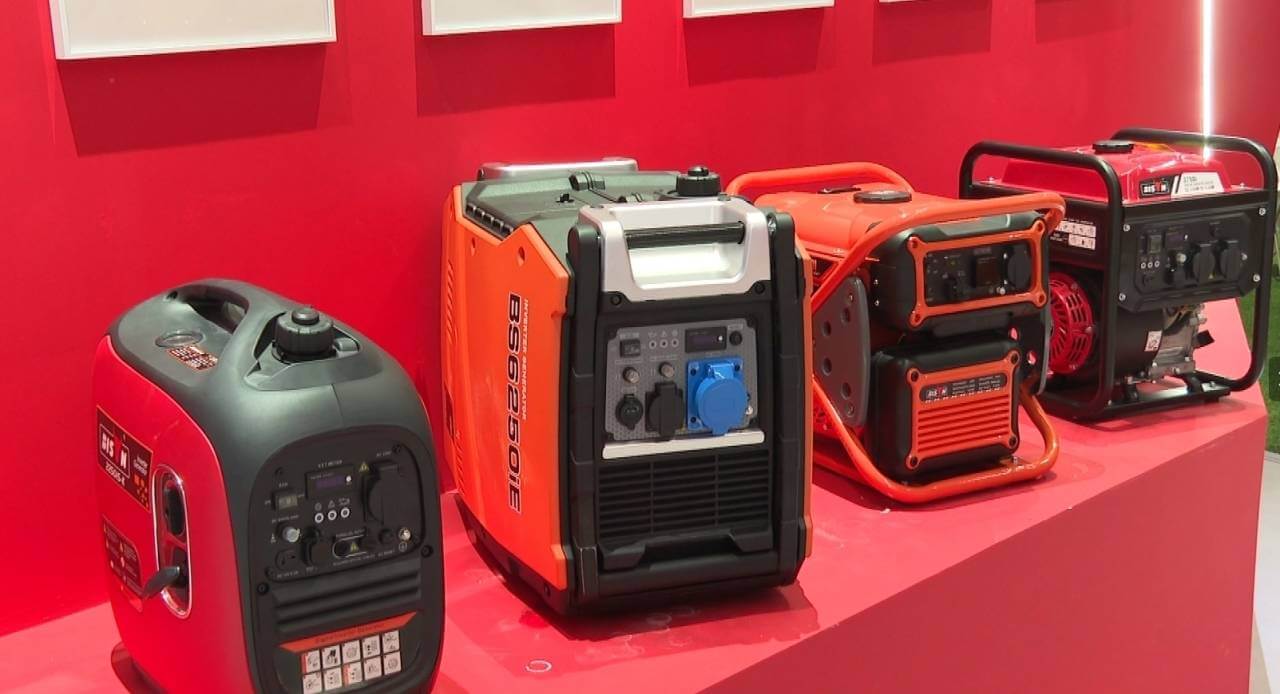
FAQs about making your generator quiet
Are inverter generators safer than traditional generators?
Carbon monoxide (CO) poisoning is a severe hazard with all generators that are not used properly. As with other portables, inverter generators should only be used outdoors in an unenclosed area, at least 20 feet from your home, with the exhaust port away from your home.
To further reduce the risk of carbon monoxide poisoning, some newer portable generators have a built-in sensor that automatically shuts off if CO geather to dangerous levels in an enclosed space.
What is harmonic distortion?
It is noteworthy that alternating currents, like sound, move in waves. These waves can be distorted. This happens when there is some interference in the signal, or the amplifier is overloaded. Sine waves experience a similar distortion. The only difference is that we cannot see or hear it. Whatever it is, it usually affects the way our electric gadget works.
Most Popular Posts
QUESTIONS?
CONTACT US TODAY.
buy?
Related Posts
Related Products
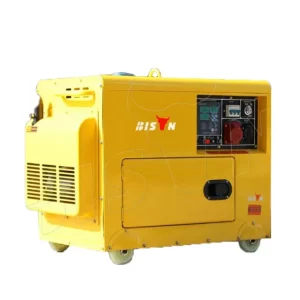
Diesel Generator Heavy Duty
Diesel Generator Heavy Duty – Product Description This one is 380V and the output power
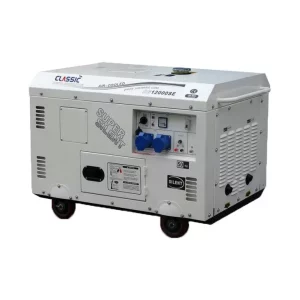
silent 15kw generator
The BISON 15kW silent diesel generator is a powerful and reliable generator that is perfect
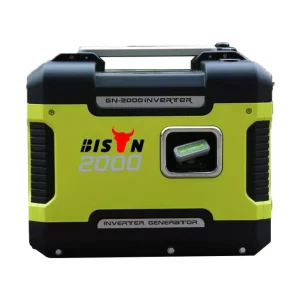
2000W Inverter Generator
– Product Parameter Place of Origin: Zhejiang, China (Mainland) Model Number: BS2000I Output Type: AC
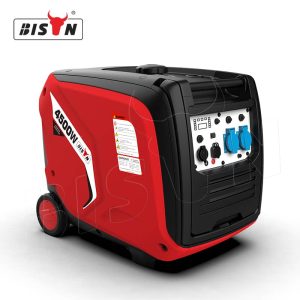
2500w digital inverter generator
The BISON BS2500I is a top-of-the-line 2500-watt digital inverter generator that delivers clean, reliable power
.png)
-qbpqbzxxvtguiuwezisu6wo6j1i29b4m1el1ir1u8o.png)

